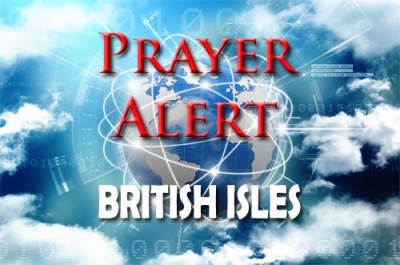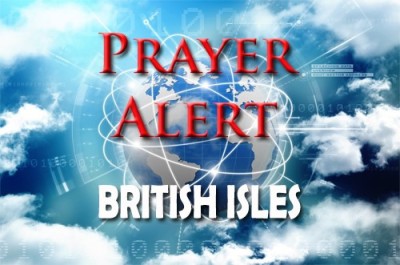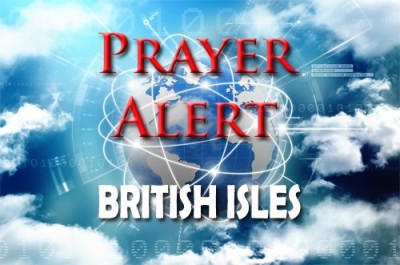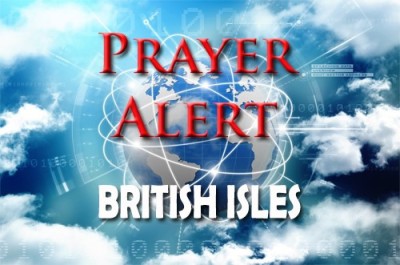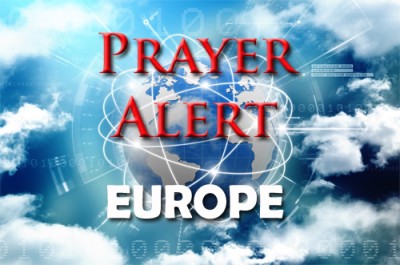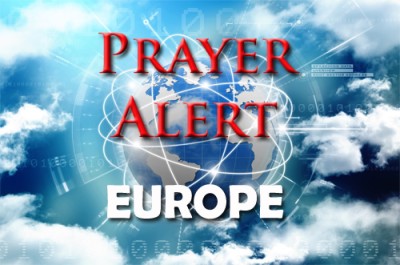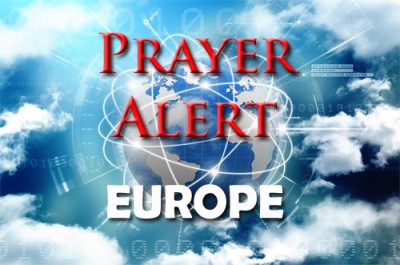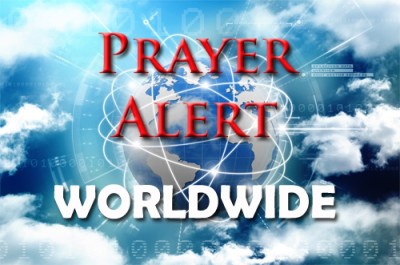Staff at homeless charity on strike
02 Jun 2023St Mungo's homeless charity launched a month-long strike from May 30th in a pay dispute. Trade Union members are picketing outside London, Brighton, Bristol, and Oxford offices. St Mungo's said they cannot afford to meet the union's demands for a backdated rise of 10%, calling the strike ‘unprecedented and disproportionate’. Unite union are ‘taking a stand following a pitiful 2.25% pay rise for the last financial year, 2021/22.’ The charity had already applied a rise of 1.75% to salaries in that year. Meeting Unite’s request for the last and current financial years would cost £9.7m and leave the charity not ‘financially viable.’ Plus, all eligible staff have already received an average 5.5% rise for the financial year 2022/23 and some also received £700 to help with their cost of living. Altogether, offers already made equal a 10% rise for the lowest paid. See also Shrewsbury homeless charity needs help.
Archbishop of York meets Pope at the Vatican
02 Jun 2023On May 29th Most Rev Stephen Cottrell, the Archbishop of York, accompanied by Mrs Cottrell and his chaplain, Rev Dr Jenny Wright, shared an audience with His Holiness Pope Francis at the Vatican in a bid to promote Christian unity. Before the trip, Archbishop Stephen expressed his hope for Christians of all denominations to work together more closely and unite in their desire to share God's love. He also met with representatives from the Dicastery for Evangelisation, the Dicastery for Promoting Christian Unity, the Dicastery for Interreligious Dialogue, and the Dicastery for Promoting Integral Human Development. He said, ‘meeting with sisters and brothers within the Roman Catholic Church is so encouraging. I pray that Christians of all denominations can work in unity, following the prompting of the Holy Spirit as we share the love of God with the many who long for hope and meaning in their lives.
Assisted suicide
02 Jun 2023Across the British Isles, campaigners are seeking to allow the terminally ill to get lethal drugs to end their lives. Jersey’s consultation on ‘assisted dying’ centred on how, not whether, the law should be changed. However, 1,400 responses argued firmly against assisted suicide. More respondents to the Isle of Man’s ‘assisted dying’ consultation were opposed to the principle of assisted suicide than for it. Member of the House of Keys, Dr Alex Allinson, who is driving the move to change the law, said the findings would ‘inform’ the drafting of legislation. The House of Commons Health Committee was ‘overwhelmed’ by the number of Christian responses to its call for evidence. MPs are currently hearing evidence on access to palliative care and the role of medics. Scotland’s proposal to legalise assisted suicide is delayed over concerns about legislative competence and will be brought forward later this year.
As many Christians water down teaching to accommodate modern Western culture, Tishrei (new beginnings) will encourage Christians to dig deeper into the unchanging truths of God’s Word. The non-residential Tishrei Bible School will bring the Bible back to the centre of family life, which has suffered a succession of laws undermining the Christian building blocks of the UK (same sex marriage, facilitating divorce, promoting abortion and forcing up childcare costs through excessive regulation). Tishrei will re-establish Hebraic teaching, focusing on the whole of life by learning to ‘walk with God’ in the power of the Holy Spirit. Built on the same foundation as the Bible school and at the same premises is the Cedars School of Biblical Family Life, helping parents to strengthen their families on biblical foundations and enrich their children’s education
Portugal: Housing crisis
02 Jun 2023Lisbon’s rent is €2,000+. The minimum wage is €760. There are more houses than people, but prices don't go down. Comedian Diogo Faro posted a social media video about high rent. His inbox was flooded with messages like divorced couples who can't afford to move out, the elderly choosing between paying rent or buying medication; shortening their lives to have a roof. Lisbon's mayor said that housing is the biggest crisis in our lifetime. 1/3 of Lisbon's historical centre is unoccupied due to ‘touristification’ - holiday rentals diverting homes from residential use to tourism. Foreign investors with Golden Visas can reside in Portugal, renovate a house, and then allow it to remain empty. Houses are being sold over and over again, creating a distortion in the housing market.
Turkey: Unreached people group
02 Jun 2023The Sunni Zaza are nomadic shepherds and farmers who practise mysticism. Years of repression leaves them crying out to God for help. Their Sunni Muslim mystical faith is rooted in shamanism and Zoroastrianism – spirituality not easily broken. Yet God is overcoming spiritual obstacles and a few dozen believers have emerged among Zaza speakers. Zaza has almost no literary tradition except a specimen of a poem praising Muhammad. Recently two magazines written in Zaza have emerged. See This little but growing church worships in Turkish - as they wait for biblical resources in their own dialects. The spoken word is more natural to Zazas than the written word, pray for workers to know how to develop fruitful oral resources.
Kosovo: Flare-ups intensify
02 Jun 2023NATO is deploying 700 additional troops to its peacekeeping mission in Northern Kosovo after clashes with local ethnic Serbian protesters left dozens injured on both sides. Majority-Albanian Kosovo declared independence from Serbia in 2008, but neither Serbia nor ethnic Serbians in Northern Kosovo recognize Kosovo’s independence. Tensions often flare over which government is legitimate. 4,000 NATO troops are keeping the peace as an agreement giving local Serbs autonomy was never implemented. Recent elections in Northern Kosovo were boycotted by the ethnic Serb majority and Kosovo won but Serb protesters prevented leaders' access to their offices until riot police and NATO dispersed them, injuring 30 peacekeepers and 50 protesters. Serbia is on alert to defend ethnic Serbs in Kosovo. Belgrade’s Moscow allies blame Kosovo and the West for the crisis. America and the EU have called for de-escalation.
India: Fears of civil war in Manipur
02 Jun 2023Christian and other minority faith group persecution in Manipur worsens. By 26th May 70+ Christians were killed, 10,000 forced from homes, 300+ churches burned or demolished, and 1,000 Christian homes destroyed as Hindus sought Christians to kill or convert to Hinduism. The Supreme Court ordered the military to maintain peace in the region, but the Hindu nationalist government has done nothing to stop the violence. Open Doors said, ‘If the situation continues civil war is inevitable, with more lives lost, properties destroyed and further open persecution of religious minorities.’ Those who have fled don't have food or shelter and face threats of physical violence. Justin Welby is distressed to hear about these attacks on indigenous tribal Christians, saying, ‘Kailean Khongsai is training for Church ordination and is from Manipur. I join him in praying that regional authorities would protect all minority groups, including Christians and their places of worship, and that justice and peace would prevail.’ See
